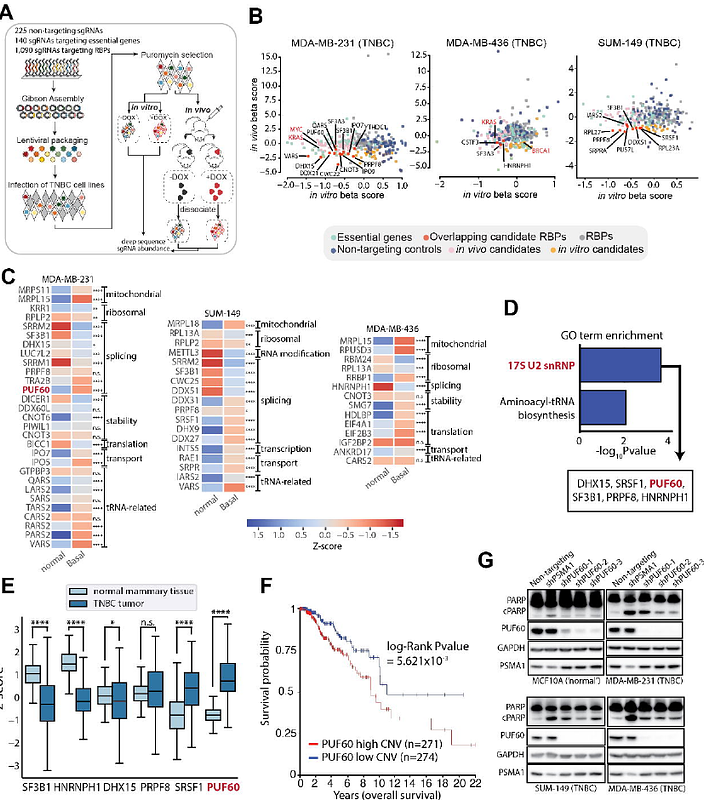Integrative CRISPR Screens and RNA-Omics Discover an Essential Role for PUF60-3' Splice Site Interactions in Cancer Progression

Integrative CRISPR Screens and RNA-Omics Discover an Essential Role for PUF60-3' Splice Site Interactions in Cancer Progression
Tankka, A.; Einstein, J. M.; Zhou, C. J.; Pham, V. N.; Zhang, Y.; Naritomi, J. T.; Nguyen, G. G.; Mizrahi, O.; Perelis, M.; Sarsam, J.; Tan, F. E.; Kaufman, D. S.; Antal, C. E.; Yeo, G. W.
AbstractRNA-binding proteins (RBPs) are important regulators of post-transcriptional gene expression. Understanding which and how RBPs promote cancer progression is crucial for cancers that lack effective targeted therapies such as triple negative breast cancer (TNBC). Here, we employ both in vitro and in vivo pooled CRISPR/Cas9 screening to identify 50 RBP candidates that are essential for TNBC cell survival. Integrated eCLIP and RNA-sequencing analysis identify that poly(U)-binding splicing factor 60 (PUF60) drives exon inclusion within proliferation-associated transcripts that, when mis-spliced, induce cell cycle arrest and DNA damage. Furthermore, disrupting PUF60 interactions with 3\' splice sites via a substitution in its RNA-binding domain causes widespread exon skipping, leading to downregulation of proliferation-associated mRNAs and inducing apoptosis in TNBC cells. We demonstrate that loss of PUF60-RNA interactions inhibits TNBC cell proliferation and shrinks tumor xenografts, revealing the molecular mechanism by which PUF60 supports cancer progression.